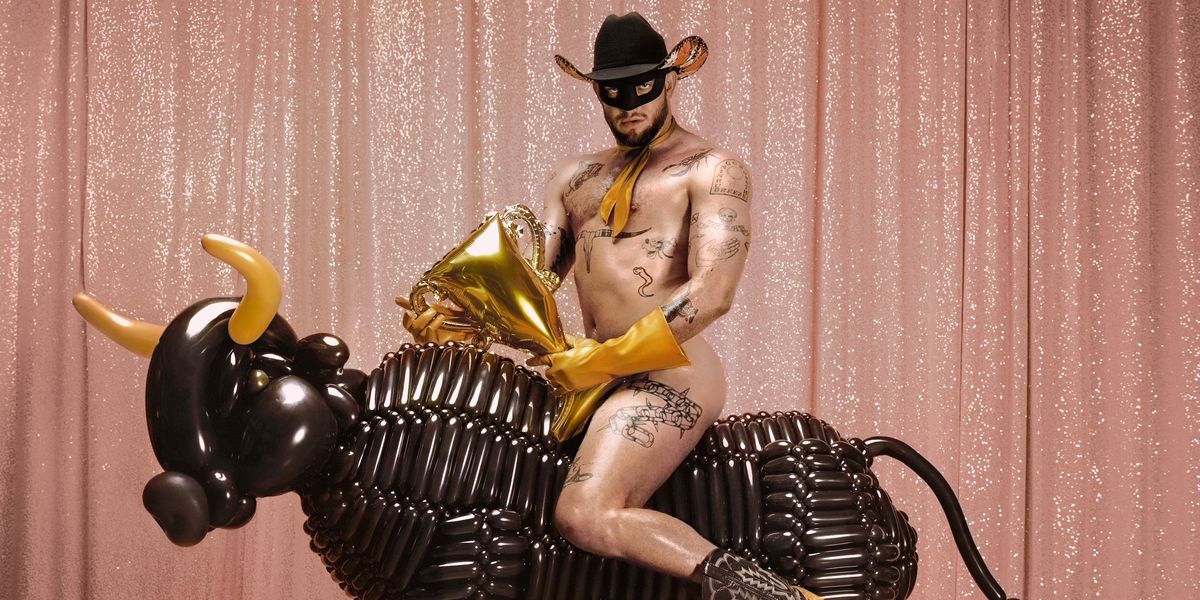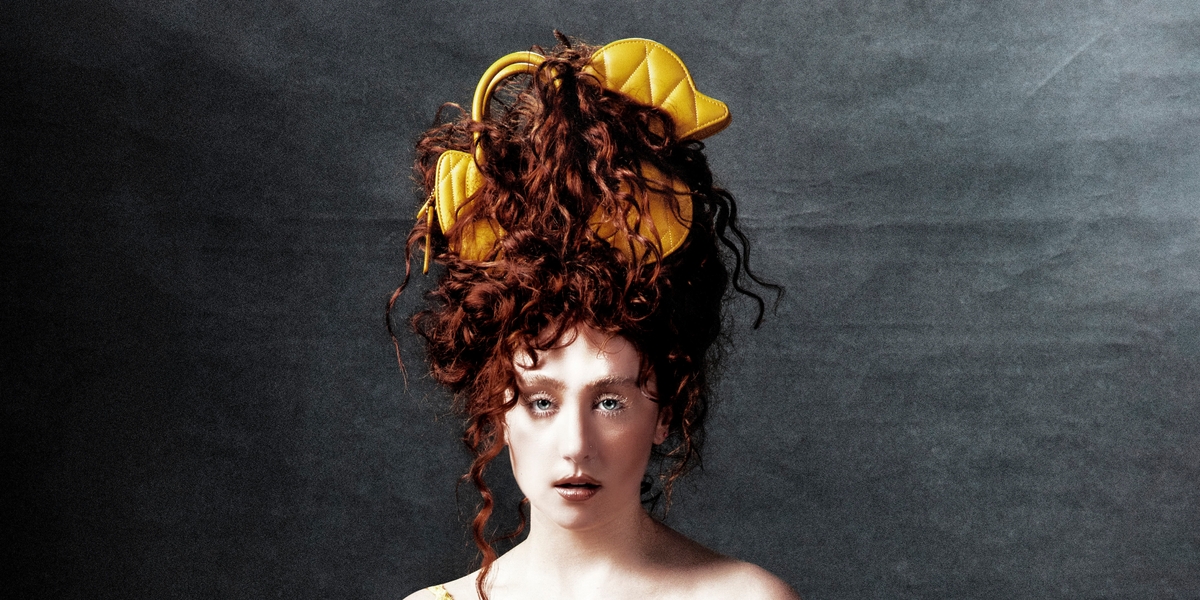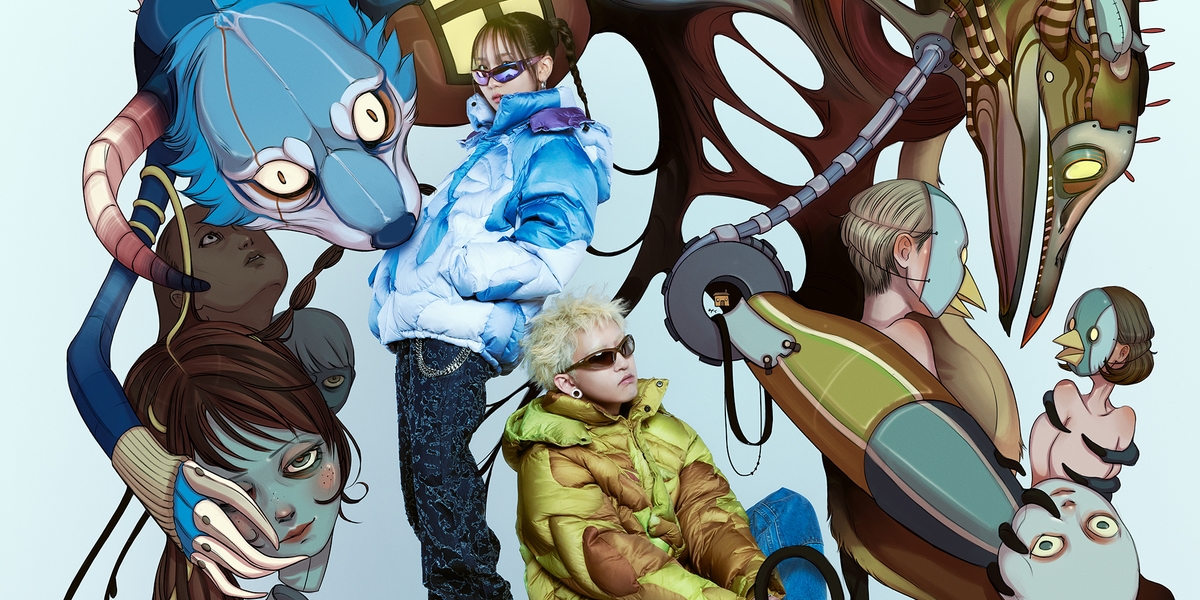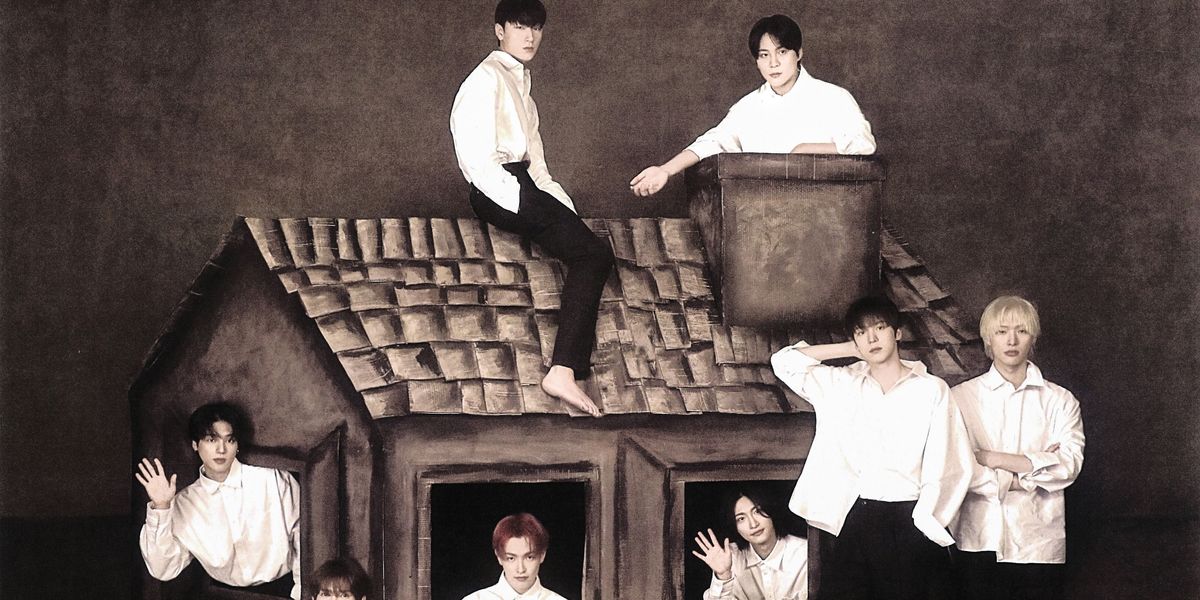
Daphne Guinness Is Irreplaceable
By Joan Summers
Jun 24, 2024Artificial Intelligence will never replace or replicate art Daphne Guiness tells me or the many pleasures of life, like love, passion, heartbreak or pain. I nod in agreement and note to myself, nothing will ever replace, or replicate, Daphne Guiness either.
The multi-hyphenate caught up with PAPER over Zoom, ahead of the release of her next album Sleep. Guinness is in the studio at Rak Records when our time zones align, deep into work on the follow-up to her eerily prophetic 2020 album Revelations. “It’s a mega piece of recording to get over the line. I still can’t believe it’s not out," she says. She’s temporarily lost in thought at the mention of the work going on all around her, and I can see the creative process churning across her face. It’s not the first or last time Guinness’ passion for her craft briefly halts our conversation and it’s all the better for it.
Guinness has just released the video for “Time,” the final track on the album. I broach the subject of her longstanding creative partnership with David LaChapelle, responsible for both the video and so many other projects across Guinness’ career. “I’ve known him now for 25 years, and we’ve never really stopped working since we met. It’s been a really fun time, because the thing with David is he knows that I will do anything he says.” I ask for examples. “Like, holding my breath for three minutes in a tank, or putting me up in a kind of biplane, or making me stand for 18 hours in the same position. That’s what I do, and it’s formed me to a great extent.”
Like Guinness, LaChapelle is best known for the fantasy worlds he creates through his meticulous stagecraft and unparalleled mastery over the photographic medium. What draws her into the similarly intricate worlds she’s presented visually, whether in music videos or magazines or print or most other places? “It’s very difficult for me to be objective about myself, but I do suppose it comes from my sort-of godfather figure, Dali. When I was a child, I got a lot of these ideas, and quite extreme ideas of surrealism drilled into me from a very young age. The idea that everything is not serious, and it’s a joke, but you have to get things done at a very, very, very high level.”
Is she aware of the hyper-surreal, hyper-creative mythologies about Daphne Guinness? “I can’t take myself seriously as an entity, but I do take what I do very seriously. It has to be fun. If you can’t see the absurdity of oneself, then it’s kind of all over, really.”
Despite the heightened imagery she is known for, Guinness is surprisingly analog — as she describes it — in her artistic process. One she says has been honed by her decades-long friendship with LaChapelle. “Having had the childhood I had, I learned a kind of very rough circuit, I learned early about light, I learned early about having to make things oneself, and being able to wire things, being able to light things, being able to create something.” Most importantly, she says, being able to “place it in a space to be observed. You create an atmosphere. The first rule of artists is light. The second rule is color.”
Beyond Dali, who was Guinness’ neighbor in Spain as a child, she was also championed by the late David Bowie. “We would discuss niche chord progressions in various opera scores, which I love reading, and also the same niche references in books. We collected the same things. It was very interesting to speak to him because I never thought anybody was on the same page, as it were. It was really nice to not feel so alone in my research.”
From this vast archive of books and music and film and art, she pulled the apocalyptic imagery of her LaChapelle-directed film Revelations. On this next album cycle, the video for “Time” flirts with references that range from Marlene Dietrich to Fritz Lang’s Metropolis. “Volcano,” also directed by LaChapelle, weaves in ‘80s pastiche and pulp cinema, while “Hip Neck Spine,” directed by Nick Knight, is an occult disco phantasmagoria. I point out that the through line of the album, contrasted with 2020’s brooding Revelations, is a groovier sound, more dance-forward than the last. There’s also middle-eights at that, a lost art in music, and Guinness laughs at the mention. “I’ve done middle-sixteens!” I posit, stuck on the topic now in my mind, that her music resists trends across the music recording landscape, to streamline sounds for online consumption, for use on TikTok. “I suppose in a world where, increasingly, real humans are being replaced by machines, trying to stem the wave of AI is impossible, but I want to be a little bit of a vanguard. Not that I’m super important or anything, but I want to try and keep the humanity in music. I think it’s an important thing.”

Guinness has much to say about AI, and no small wonder. Of LaChapelle, who’s technical craft she praises throughout, she says: “I don’t think they can approach the way he approaches light, because everything is made from the ground up. Every single thing has intention, whether it's the smallest thing on set to the biggest thing, everything is considered by him. He’s like a conductor, but more than a conductor, because he does everything and doesn’t miss anything.”
For Guinness, the artistic process is fundamentally at odds with the “perfection” oriented goals of AI. “There is no point in perfection. All mistakes are good, mistakes are everything. I create mistakes because at heart, I’m a subversive person.” But its not just the perfection that rubs at Guinness about the proliferation of AI art, but what it fundamentally lacks, a problem I mention might begin with its progenitors: engineers, software designers, coders, the like. “Maybe you’’ get AI to understand desire, or an analog feeling, but I’m not sure you can replicate it.” As the machine churns, she also points out the worsening quality of the output, the result of garbage fed to make more garbage: “A year ago, the initial images seemed quite good. But the more images that get pumped into the internet, or AI, they just seem to get worse and worse. Everything seems to be more bland, more gray. AI might be like the snake that eats itself.”
Guinness, who so deftly weaves together reference points across time, with a taste level proudly shaped by the human experience, sums up our brief aside quite succinctly. “Taste is a really important thing in music and fashion and architecture. I'm not sure if the people that sit in rooms with glass tables with questionable art on the walls have it.” She pauses a moment. “Maybe I’m hopelessly out of fashion, but I really do believe in beautiful things.” I tell her that I have chosen to live in a world where that sentiment will persist.
I ask, after a fashion, if her relationship to music has changed since 2016’s Optimist In Black. Or rather, if she has found herself shaped by the experience of it. “Tony Visconti told me I have a beginner's mind. Every day I wake up, and I’m ready to receive new information. Every time that I think I’ve cracked the code, I realize it’s a bit like being on the first base of Everest. There’s a lot more to find out.” She smiles, something flashing across her eyes, a remembrance of some lesson learned. “Music is the gift that keeps giving. If you go in on a deep level, it’s very, very satisfying because there is so much more to find out. So many rules you can break.”
You can listen to Daphne Guinness’ Sleep everywhere on June 21.

Photography: Malcolm Doherty
From Your Site Articles
Related Articles Around the Web
MORE ON PAPER
Music
We're in the Mahmood
Story by Kyle Rice / Interview by Willy Chavarria / Photography by Hannah Khymych / Styling by Marissa Pelly / Grooming by Francis Rodriguez / Makeup by Kauv Onazh
Story by Kyle Rice / Interview by Willy Chavarria / Photography by Hannah Khymych / Styling by Marissa Pelly / Grooming by Francis Rodriguez / Makeup by Kauv Onazh
18 June
Music
Orville Peck Is Ready to Take It All Off (Almost)
Story by Michael Cuby / Interview by Gottmik / Photography & direction by Brett Loudermilk / Creative & art direction by Zain Curtis / Styling by Catherine Hahn / Hair and makeup by Hatti Rees
Story by Michael Cuby / Interview by Gottmik / Photography & direction by Brett Loudermilk / Creative & art direction by Zain Curtis / Styling by Catherine Hahn / Hair and makeup by Hatti Rees
11 June
Music
Chappell Roan Is Taking It
Story by Joan Summers / Interview by Trixie Mattel / Photography by Hector Clark / Styling by Genesis Webb / Makeup by Doniella Davy / Hair by Faye Celeste
Story by Joan Summers / Interview by Trixie Mattel / Photography by Hector Clark / Styling by Genesis Webb / Makeup by Doniella Davy / Hair by Faye Celeste
04 June
Music
YOASOBI's Global J-Pop Overthrow
Story by Travis Shosa / Photography by Brian Ziff / Illustration by Lauren Tsai / Styling by Nico Amarca / Hair and makeup by Youca
Story by Travis Shosa / Photography by Brian Ziff / Illustration by Lauren Tsai / Styling by Nico Amarca / Hair and makeup by Youca
21 May
Music
ATEEZ Break the Limit
Story by Crystal Bell / Photography by Szilveszter Mako / Styling by Lisa Jarvis / Set design by Krzysztof Katus / Makeup by Seulji Li / Hair by Dayeong Jeong / Props by Edith Di Monda
Story by Crystal Bell / Photography by Szilveszter Mako / Styling by Lisa Jarvis / Set design by Krzysztof Katus / Makeup by Seulji Li / Hair by Dayeong Jeong / Props by Edith Di Monda
16 May




